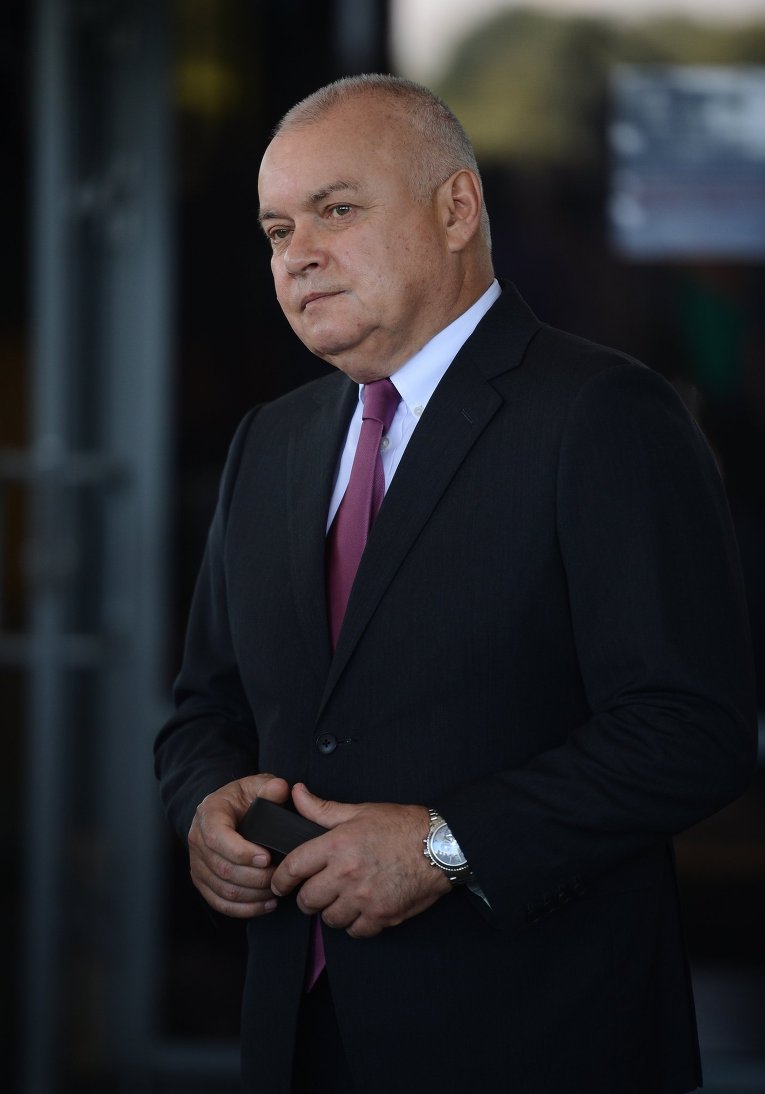MOSCOW, June 15 (RAPSI) – The General Court of the European Union has upheld extension of restrictive measures imposed on Dmitry Kiselev, head of the Russian state news agency Rossiya Segodnya, in relation to 2013-2014 crisis in Ukraine, the court’s ruling available to RAPSI reads on Thursday.
In March 2014, the Council of Europe imposed sanctions against Kiselev with the official reason him being a “central figure of the government propaganda supporting the deployment of Russian forces in Ukraine.” The measures against him include freezing of assets and other economic restrictions, as constituted by the Council’s decision.
According to the court ruling, Kiselev challenged repeated extension of the restrictive measures’ application in March 2015, September 2015 and March 2016, and argued that the Council’s decisions were made in violation of law. In particular, he claimed that these decisions, among other violations, constitute infringement of the right to freedom of expression and manifest an error of assessment with regard to the application of the criterion at issue to Kiselev’s situation.
The court ruled that the imposed restrictive measures were lawful. Regarding the alleged infringement of freedom of the right to freedom of expression it noted that this right may be limited in certain circumstances. The court further argues that the limitations in this case are necessary and proportionate because Kiselev allegedly engages in “propaganda in support of the actions and policies of the Russian government destabilizing Ukraine.”
In similar fashion, the court dismissed other pleas made by the plaintiff, including failure to provide clear reasons for extension of sanctions, infringement of the right to effective judicial protection and the breach of the Partnership Agreement between the European Union and Russian Federation. Regarding the latter, the court noted that while the agreement ensures free movement of capital between the EU and Russia, exceptions may be invoked unilaterally, in particular “in time of war or serious international tension” stating that alleged actions of Russia in Ukraine do constitute “war or serious international tension constituting threat of war.”



